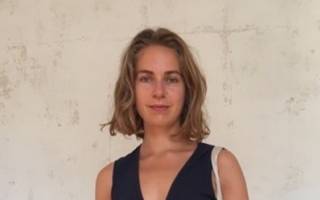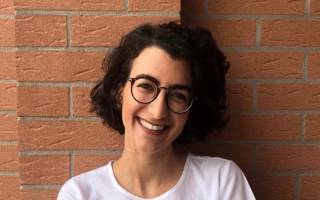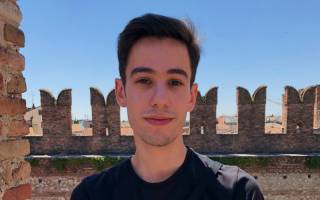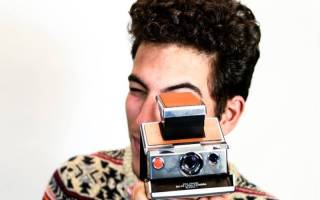Research and Teaching Culture
The Department takes a holistic approach to the history of art. Postgraduate students are encouraged to think and work beyond the boundaries of chronology and geography – to question and be critical of the ways in which art’s history has been written. Our proximity to and relations with national museums and galleries, such as the British Museum, afford access to innumerable artefacts and artworks. UCL's own Art Collections hold many rare and important works. Our ongoing and extensive contact with other departments within UCL, and Art History departments in the University of London, facilitates joint skills training, as well as communication in shared seminars and public events.
MA Study in the Department
The structure of the History of Art MA means that students can engage with broad debates whilst also focusing their research on their personal interests. Our MA Core Course asks students to engage with the broad theoretical and methodological debates that have come to frame the History of Art as a field of study. Our Special Subject seminars allow students to delve deeply into a single area of research. Combined, these seminars prepare students for undertaking independent research on their MA dissertation. These MA dissertations, developed through extended supervision with one member of the Department, could later form the basis of doctoral research; several have been awarded the Association for Art History Postgraduate Dissertation Prize.
Special Subject Seminars
Work in the classroom is combined with research undertaken in museums and archives throughout London, weekly events including research seminars and lectures, artist talks and symposia held in the Department as well as throughout the University. Students past and present attest to the vibrant research culture, the rigorous methodological training in the field and the camaraderie between members of the MA cohort.
PhD Study in the Department
The UCL History of Art Department is top-rated for research; our staff are active researchers in a range of specialist fields and supervise a huge variety of PhD topics. Learn more about the current PhD research projects in the department.
We have a thriving graduate research community. Students participate in our regular graduate seminars, are active in organising events for Past Imperfect and the Centre for the Study of Contemporary Art (CSCA) which are based in the department, and research students also write, edit and produce the journal Object. PhD students are also encouraged to participate in ReSkIN, which is a seminar and support scheme for PhD students working in the fields of art and architectural histories, as well as visual, cultural and curatorial studies. The programme brings together students from eight different institutions: the Bartlett School of Architecture, Birkbeck, the Courtauld Institute, Goldsmiths, SOAS, the Slade School of Art, UCL and the Warburg Institute.
The PhD typically takes 3–4 years to complete on a full-time basis. Typically, a full-time student will register and pay fees for the first three years and will then spend up to a year writing up, where they have Completing Research Status (CRS) and are not required to pay tuition fees. However the process is not always linear; students sometimes switch between full-time and part-time study, take interruptions, parental leave and other breaks. The Department will support you to complete your thesis whatever life throws in the way.
We also offer opportunities for research students to work as Teaching Assistants in the department; these opportunities will be posted on our Jobs page.
Creating an Inclusive Department
MA and PhD students are represented on the departmental Equality, Diversity and Inclusion Committee, ensuring that their voices are heard. Learn more about EDI in the department.
Opportunities and Careers
A postgraduate degree at UCL History of Art requires independent, self-motivated research and will enable students to develop original thinking on all aspects of visual culture, drawing on historical and contemporary cultural debates. Students gain experience of working in different kinds of archives and with different approaches to visual material. Many of our MA students continue to PhD study, whilst others graduate and pursue careers in a huge variety of sectors. The department offers a plethora of careers support, including:
- Dedicated Careers Tutor - The department has a dedicated Careers Tutor, who offers one-to-one advice and support to History of Art students, no matter what stage they are at in their career journey.
- UCL Careers - All our students and alumni have access to the services of the UCL Careers team, the professional, college-wide office for careers-related support.
- UCL Innovation and Enterprise - UCL Innovation and Enterprise offer a range of courses, lectures, events, competitions, and resources for those interested in business and entrepreneurship.
- Societies & Volunteering - The UCL History of Art Society (@uclhoas) regularly organises curator’s tours, talks with art world professionals and career-focused behind-the-scenes glimpses, to students in the department and beyond. In addition, the University College London Union hosts numerous student-run societies oriented towards specific sectors and potential future careers for UCL students.
- UCL Alumni Community and Mentoring - The UCL Alumni Online Community is an online network of UCL alumni, spanning a wide range of professions, who have volunteered to give informal advice to UCL students and graduates. If you're considering your options and want the inside track on sectors and roles you're interested in, talking to one of these past UCL students could be useful in finding out more.
Find out where your UCL History of Art degree can take you.
PhD students are trained to work as teaching assistants in the department, and the combination of research and teaching skills prepares them for the diverse demands of an academic career, should they choose to pursue this. Recent graduates have been awarded prestigious post-doctoral fellowships and secured academic positions at top universities and research institutes across the world. Many have also pursued successful curatorial careers at major museums and collections, including Tate Modern, the Hayward Gallery, The Victoria and Albert Museum, the Barbican Art Gallery, and MOMA.
Testimonials
Daisy Clery, PhD History of Art

I joined the History of Art Department to study for an MA. At once rigorous and creative, the departmental approach was like nothing I had experienced before. In the end, my only PhD application was to UCL.
Chiara Traversaro, MA History of Art

What I liked most about the MA was its stimulating environment, not only in the seminars – through the discussions with professors and fellow students – but also in the wealth of other opportunities that the Department offers (research seminars, public talks, book launches, and more). All of this enriched my experience as a MA student and made me feel part of a community of researchers and art historians.
Alexander Swanson, MA History of Art

The Core Course focus on methods, historiography, and current faculty research offered a collaborative environment for MA students. The Core Course gave a chance to learn and discuss questions of the field with classmates from a range of backgrounds, many of them outside art history. Most weeks we would go overtime to bring in issues not only of art, but also of philosophy, psychoanalysis, anthropology, and visual studies (to name a few). The combination of lectures, student presentations, and discussions was particularly productive. This course, along with the keen teaching focus of the dissertation, was reason enough for me to choose the UCL MA in History of Art.
Samuel Vladimirsky, MA History of Art

Having entered this programme without an undergraduate degree in the history of art, it was so rewarding to find myself in such a welcoming and academically challenging environment with an international cohort of students and faculty. The programme catered to my individual interests, and expanded them tenfold! The core course provided a strong theoretical framework that profoundly changed the ways in which I approach images, while the special subjects were remarkably interdisciplinary, and, in my case, offered novel ways of thinking about art through psychoanalysis and anatomy. When COVID-19 broke out, the Department stayed in constant communication and was beyond understanding and supportive of its students.
 Close
Close

